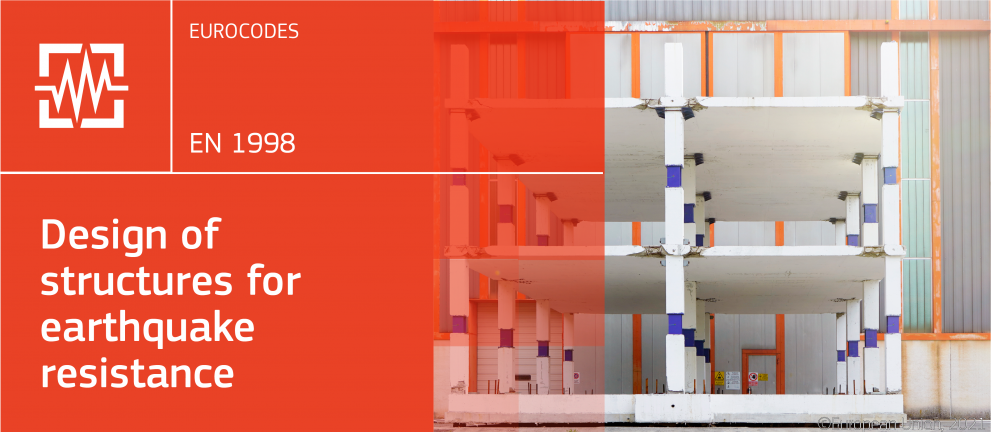

EN 1998 Eurocode 8 applies to the design and construction of buildings and other civil engineering works in seismic regions. Its purpose is to ensure that in the event of earthquakes
- human lives are protected;
- damage is limited;
- structures important for civil protection remain operational.
Parts
| EN 1998-1:2004 | Eurocode 8: Design of structures for earthquake resistance – Part 1: General rules, seismic actions and rules for buildings |
| EN 1998-2:2005 | Eurocode 8: Design of structures for earthquake resistance – Part 2: Bridges |
| EN 1998-3:2005 | Eurocode 8: Design of structures for earthquake resistance – Part 3: Assessment and retrofitting of buildings |
| EN 1998-4:2006 | Eurocode 8: Design of structures for earthquake resistance – Part 4: Silos, tanks and pipelines |
| EN 1998-5:2004 | Eurocode 8: Design of structures for earthquake resistance – Part 5: Foundations, retaining structures and geotechnical aspects |
| EN 1998-6:2005 | Eurocode 8: Design of structures for earthquake resistance – Part 6: Towers, masts and chimneys |
The random nature of the seismic events and the limited resources available to counter their effects are such as to make the attainment of these goals only partially possible and only measurable in probabilistic terms. The extent of the protection that can be provided to different categories of buildings, which is only measurable in probabilistic terms, is a matter of optimal allocation of resources and is therefore expected to vary from country to country, depending on the relative importance of the seismic risk with respect to risks of other origin and on the global economic resources.
Special structures, such as nuclear power plants, offshore structures and large dams, are beyond the scope of EN 1998. EN 1998 contains only those provisions that, in addition to the provisions of the other relevant EN Eurocodes, must be observed for the design of structures in seismic regions. It complements in this respect the other EN Eurocodes.
News
Book your agenda for the second generation Eurocodes workshop - Registration now open!
A free online workshop full of practical examples, provided by CEN Technical Committee 250 'Structural Eurocodes' and organised by the European Commission Joint Research Centre (JRC)
Prof. Michael Fardis has received the 2021 Vassilis Xanthopoulos - Stephanos Pnevmatikos Award for Excellence in Academic Teaching
On 21st December 2022, the President of the Greek Republic presented prof. Michael Fardis - chair of CEN TC250 / TC8 during the development of Eurocode 8 - with the Vassilis Xanthopoulos - Stephanos Pnevmatikos Award for Excellence in Academic Teaching for the year 2021.
Brunei Darussalam explores the use of the Eurocodes
EU and Brunei explore use of construction design standards, the Eurocodes
Publications
The Eurocodes Balkan Summer School 2021: Sharing Knowledge To Enhance Seismic Resilience
This JRC Conference and Workshop Report presents the scope, programme, conclusions and follow-up of the Eurocodes Balkan Summer School 2021 on the seismic design of concrete buildings
Expected implications of climate change on the corrosion of structure
The work outlines recent EU policies supporting the sustainability and climate resilience of infrastructure and buildings.
It evaluates the expected variations in climatic factors causing corrosion,…
Seismic design of road bridges with EC8
Abstract only available in original language
